On May 17-18, 2025, "Shared Future: Building an Open and Inclusive Economic and Financial System" – 2025 Tsinghua PBCSF Global Finance Forum Successfully Held in Shenzhen.
On the afternoon of the 17th, the Session Ⅵ, themed "Emerging Market Debt Crises: Implications for Strengthening Financial Governance Frameworks" focused on the debt crises affecting emerging markets, analyzing different countries' governance approaches and policy responses.
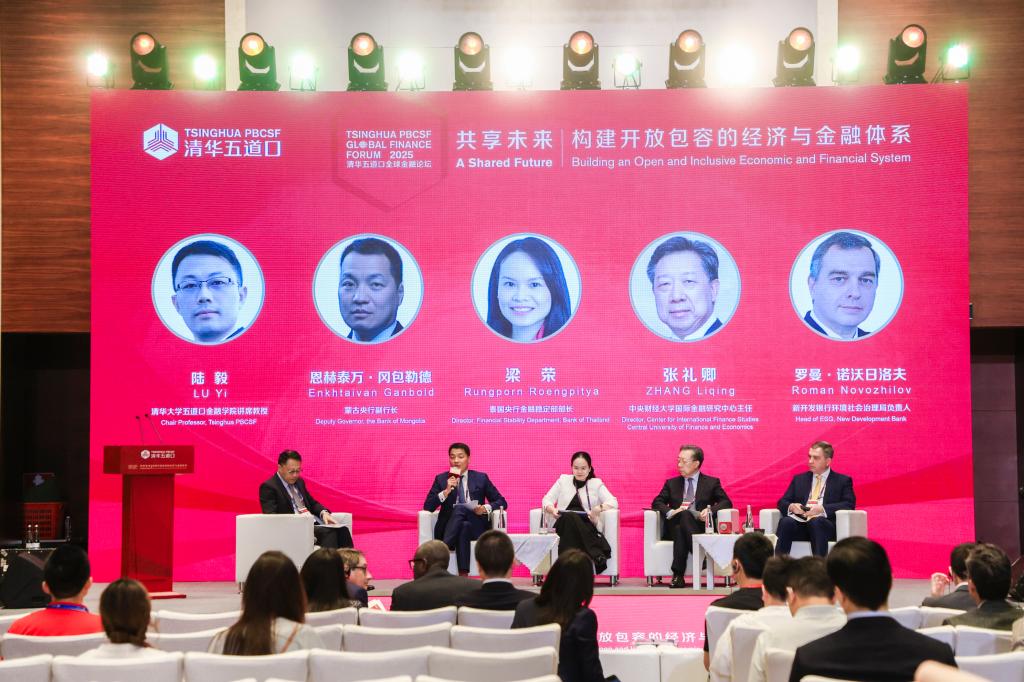
The scene of the roundtable discussion
The meeting adopted a roundtable discussion format, featuring lively exchanges among four distinguished panelists, including Enkhtaivan Ganbold, Deputy Governor, Bank of Mongolia; Rungporn Roengpitya, Director, Financial Stability Department, Bank of Thailand; ZHANG Liqing, Director, Center for International Finance Studies, Central University of Finance and Economics; Roman Novozhilov, Head of ESG, New Development Bank.
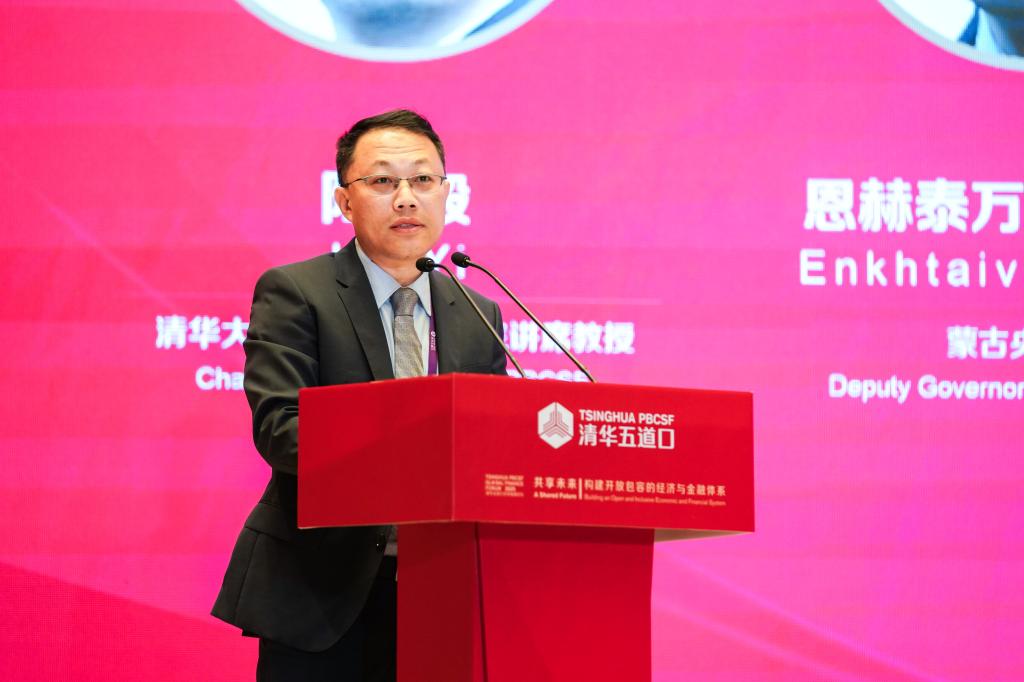
LU Yi
The session was moderated by LU Yi, Chair Professor at Tsinghua PBCSF.
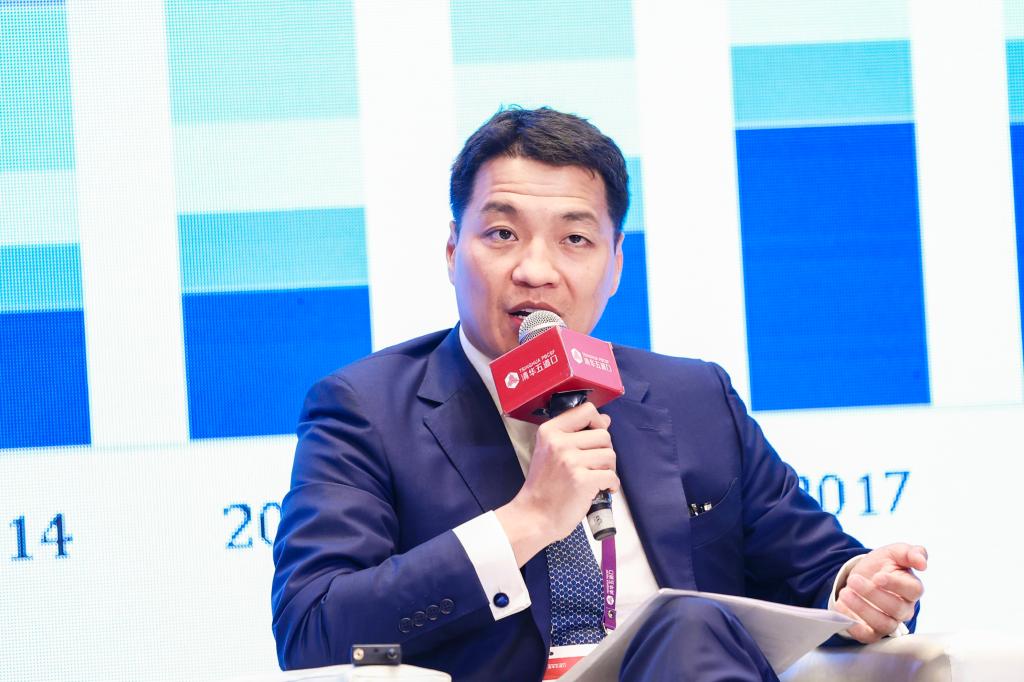
Enkhtaivan Ganbold
Enkhtaivan Ganbold elaborated in detail on Mongolia's practical experiences in addressing the debt crisis. He noted that Mongolia, as a resource-dependent economy, saw its government debt rise to as high as 90% of GDP in 2016, sparking concerns in international markets. To tackle this crisis, the Mongolian government implemented a series of robust measures.
Legislation was enacted to establish a strict legal ceiling on external debt, setting a hard limit concerning the percentage of GDP. This measure laid a solid legal foundation for fiscal discipline. Mongolia also established a transparent debt disclosure mechanism. Since 2010, the country has been publishing comprehensive external debt data—covering the government, central bank, and private sector—on a quarterly basis in accordance with International Monetary Fund (IMF) standards. This practice significantly bolstered market confidence.
In addition, Mongolia actively expanded international cooperation. It signed a currency swap agreement worth 15 billion RMB with China and conducted debt refinancing through sovereign bond issuance, effectively optimizing its debt structure. The funds raised were strategically invested in social welfare projects such as education and healthcare, substantially improving people's livelihoods and enhancing the economy’s internal growth momentum.
Enkhtaivan Ganbold emphasized that these measures successfully reduced the government debt-to-GDP ratio to 60% and elevated Mongolia sovereign credit rating to B+. This experience serves as a compelling example for other emerging market economies, demonstrating that even small countries can achieve debt sustainability. He pointed out that strict fiscal discipline, transparent information disclosure, and international cooperation constitute the three key pillars for emerging markets to effectively manage and overcome debt crises.
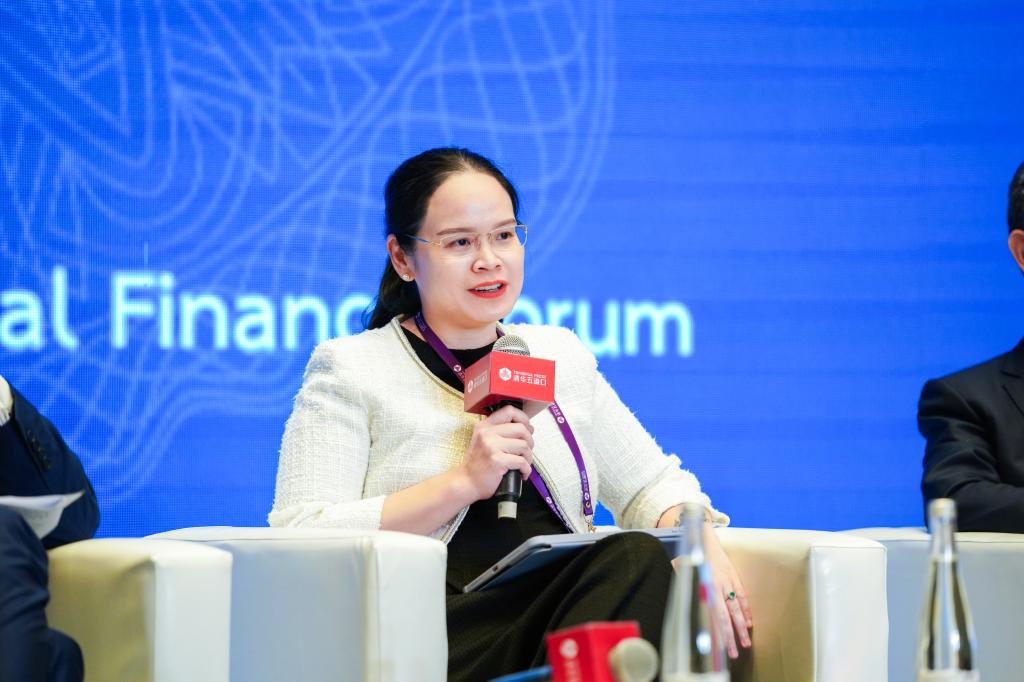
Rungporn Roengpitya
Rungporn Roengpitya started out by stating that, for many countries, the debt level had been elevating even before and was made worse by the 2020 COVID-19 and 2022 inflation spike incidents. These latest two events resulted in both income shocks and rising costs for households and businesses, prompting some to accumulate more debt. Also, stimulus programs by government to cushion for such shocks also led to rising public debt. The accumulation of debt can be seen on all fronts—corporates, households and government—and across countries. For Thailand, while the corporate debt to GDP is in line with peers, household debt to GDP remains high compared to peers and several measures have been put in place to ensure orderly household debt deleveraging such as the Responsible Lending Program and debt consolidation platforms.
She also pointed out challenges going forward in achieving “beautiful deleveraging” amid high uncertainty environment at present where intertemporal trade-offs and “lean against the wind” strategies will become more difficult to execute. Policy interactions may also differ from past relationships, making the assessment of interactions more challenging.
Regarding the balance between debt relief and moral hazard, Rungporn Roengpitya simply quoted the Chinese proverb “relief emergencies but not chronic poverty” so that striking such balance will protect both stability and integrity.
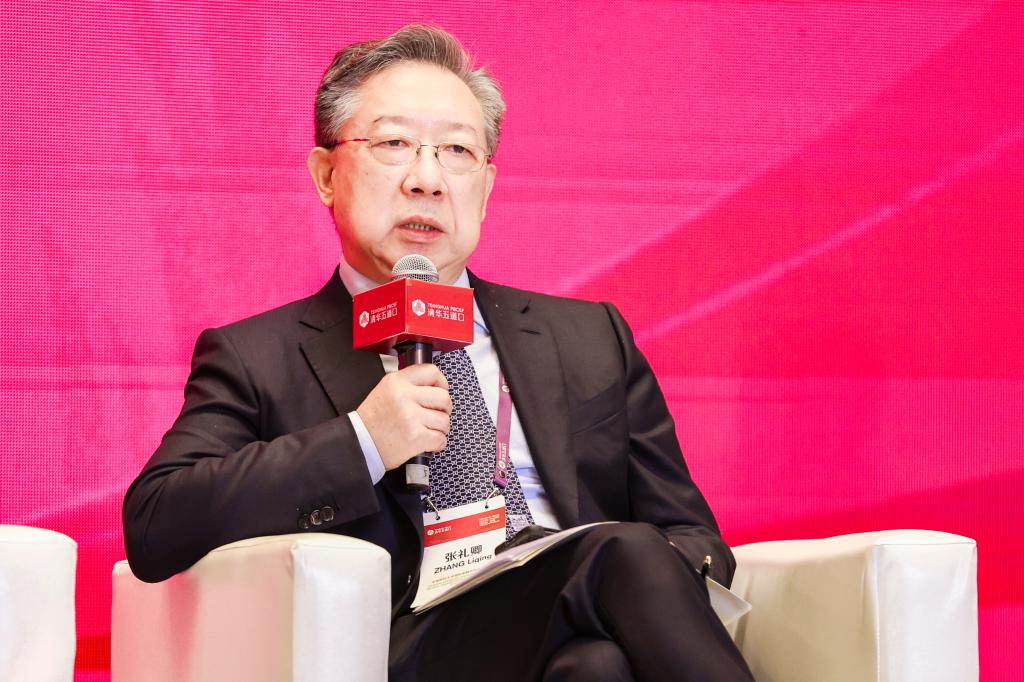
ZHANG Liqing
ZHANG Liqing pointed out that the current global debt situation remains severe. He noted that global debt levels have continued to rise since the 2020 COVID-19 pandemic, reaching a record high of $318 trillion in 2024. In emerging market economies, total debt has exceeded $105 trillion, also hitting a historic peak. These economies are now facing their highest actual financing costs in a decade, with financial fragility increasing significantly. Factors such as the lingering impact of Trump-era tariff policies, slowing global economic growth, volatility in international financial markets, escalating geopolitical conflicts, and reduced development assistance from developed countries have collectively contributed to a marked escalation of debt risks in emerging market economies. Approximately 15% of low-income countries are already in debt distress, with another 45% at high risk of falling into similar situations. ZHANG Liqing proposed several recommendations to address these challenges:
First, the international community should actively work to restore normal global trade order and advance reforms in the international monetary and financial system; Second, the G20 policy dialogue mechanism should be leveraged to maintain stability in global financial markets; Third, efforts to strengthen the global financial safety net must be intensified, including large-scale special drawing rights (SDR) allocations to alleviate liquidity pressures in emerging market economies;
Fourth, improvements to global sovereign debt restructuring and relief mechanisms are needed to reduce the debt burden of low-income countries through multiple channels; Fifth, innovative approaches to resolving sovereign debt crises should be explored——such as linking debt relief to SDG-aligned projects, where debt forgiveness is exchanged for increased climate investments;
Sixth, emerging market economies should adopt proactive policy measures, including implementing structural reforms, pursuing prudent fiscal policies, and improving the investment environment to attract more private capital inflows. He emphasized that emerging market economies should deepen South-South cooperation, such as expanding RMB swap agreements and promoting the issuance of "Panda Bonds". Additionally, Asian countries could explore upgrading the Chiang Mai Initiative Multilateralization (CMIM) to an Asian Monetary Fund to enhance regional resilience against financial risks. Finally, he called for the establishment of a fairer and more inclusive international economic order to fundamentally address the debt challenges faced by emerging market economies.

Roman Novozhilov
Roman Novozhilov shared the New Development Bank's (NDB) innovative practices in promoting sustainable development financing. As the first multilateral development bank fully initiated and established by emerging market countries, the NDB has upheld from its inception the core vision of "promoting sustainable development through South-South cooperation".
The NDB has identified three key areas of innovation: First, innovation in financing models—in particular, 18% of its loans are now denominated in Chinese yuan, significantly reducing exchange rate risks; Second, innovation in project selection—prioritizing "win-win" projects that support both economic growth and environmental sustainability; Third, innovation in collaboration models—streamlining processes and referring to the country system to enable more developing countries to access much-needed funding for development.
He cited the clean energy project in Brazil as an example of how yuan-denominated financing can facilitate South-South technological cooperation. He noted that the NDB is working closely with its member countries to develop ESG standards better suited to the characteristics of emerging markets.
Looking ahead, Roman Novozhilov emphasized that the Bank will continue to expand the share of local currency financing and allocate more resources toward climate adaptation and energy transition. He stressed that genuine sustainable development must be built upon a fair and inclusive international financial system—and that this remains at the heart of the NDB’s mission.